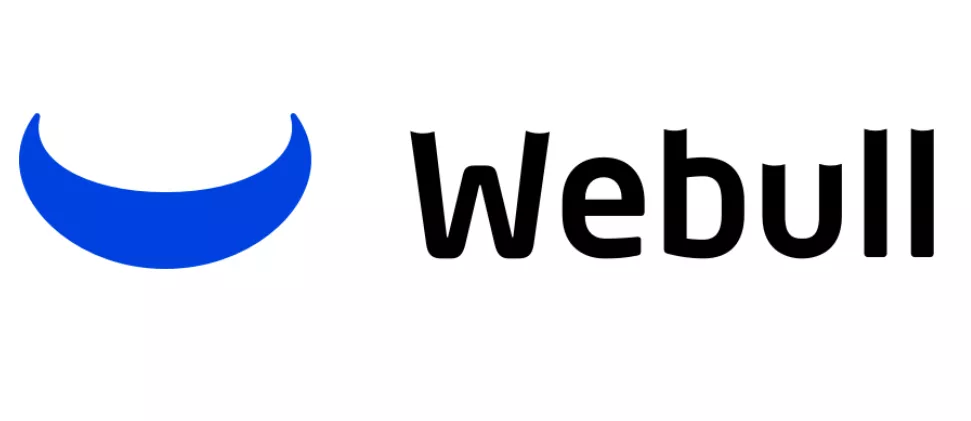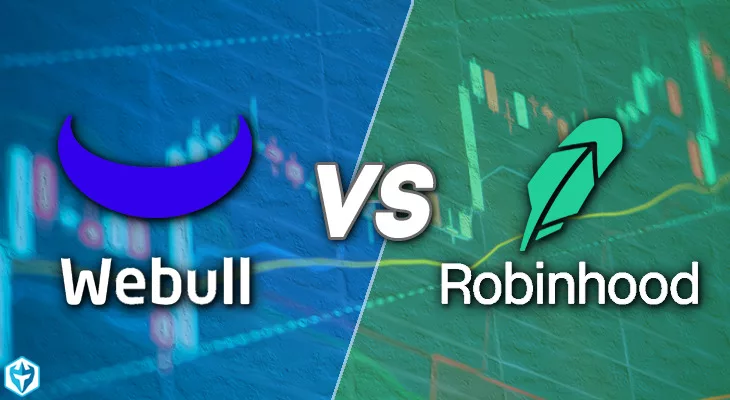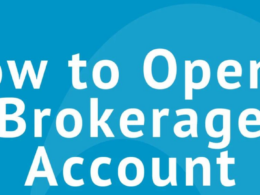Investing versus serious trading: Understanding the difference
Table of Contents
eToro, founded in Israel in 2007, expanded to the U.S. in 2018, initially focusing on cryptocurrencies. Later, in January 2022, it broadened its offerings to include more assets. Unlike traditional investing apps, eToro has a social aspect where users can copy popular traders and engage with others on its social feed. However, it has fewer options for trading stocks, ETFs, and cryptocurrencies than other platforms.
Webull, a platform launched in 2017, provides a more extensive range of investment and trading options than eToro. It offers access to various stocks, ETFs, options, and margin investing, making it suitable for beginners and intermediate traders. The latest version, Webull 8.0, has been updated to offer a comprehensive trading platform with tools for both fundamental and technical traders. One of its attractive features is that it doesn’t charge any trading commissions. We’ll explore the features, similarities, and differences between eToro and Webull to help you decide which investment platform suits your needs best.
Warning: Investing in cryptocurrency is risky, and you could lose all the money you put in. It’s important to understand this before you invest. Cryptocurrency is a high-risk investment; there’s no guarantee you’ll get your money back if things don’t go well. Take a couple of minutes to learn more about the risks involved.

FAST FACT
Account Minimum: Investing in stocks and ETFs costs $10 while using CopyTrader requires $200.
Fees: Trading cryptocurrency incurs a 1% fee, but there are no fees for trading stocks, ETFs, and options.
Read full review

FAST FACT
Account Minimum: $0
Fees: Trading stocks, ETFs, and options on this platform doesn’t cost anything in commissions.
Read full review
Usability
Both eToro and Webull have user-friendly interfaces for their websites and apps. eToro emphasizes social interactions, showing a news feed on its homepage. The website and app are similar, offering access to your portfolio and assets through the “Discover” tab. However, eToro has fewer research tools and tradable assets than Webull. Its social features, like CopyTrade for cryptocurrencies and the Popular Investor Program, set it apart. These features allow users to follow other investors’ trades easily, adding a social aspect to the app. Whether this is good or bad depends on the profitability of these trades and your interest in social investing.
Webull provides both web-based and downloadable trading platforms and a mobile app that mirrors the computer-based experience. Despite its many features, Webull remains easy to use. It offers customizable quotes, detailed pages for stocks and ETFs, a trading screen, and a comprehensive account tab. Webull’s user-friendliness has earned it awards like Best Broker for Low-Cost Options Trading and Best Low-Cost Day Trading Platform. Its smooth usability and extensive features outshine competitors like eToro and Robinhood.
Trade Experience
Desktop Experience
In eToro, investors can trade using different tabs like trade, watchlist, and discover. The platform provides real-time quotes and allows investing in ETFs, stocks, and cryptocurrencies. Unique features like CopyTrade and the Popular Investor Program, along with the social news feed, create a fun atmosphere similar to a game, which could reduce the importance of doing research and understanding the risks of investing. The Popular Investor Program encourages sharing trading insights and compensates popular investors with more followers. Custom watchlists, including volatility alerts, can be synced across desktop and mobile platforms. However, eToro’s research tools are basic, with limited features and customization options.
It’s worth mentioning that eToro doesn’t allow shorting when markets are down. This means expert traders and their followers can’t use this tool during market declines, limiting their ability to adjust to market changes. Additionally, eToro’s lack of proper volume indicators makes volume-related investment strategies less accurate.
Webull’s trading tools and features surpass those of eToro. The updated Webull 8.0 offers even more customization and features, including templates for trading stocks, ETFs, and options. It includes 20 new technical indicators, more market news, and advanced charting options. Weibull’s research capabilities are impressive, with rare tools for probability and testing in similar investment apps.
In summary, eToro focuses more on social interaction in investing, which can be confusing. On the other hand, Webull is ideal for new to intermediate investors and traders seeking a platform with many trading features.
Mobile Experience
Both eToro and Webull offer similar experiences on both mobile and desktop platforms. eToro’s mobile app stands out with its social feed, allowing users to interact with other investors easily and access popular investor profiles. While beginners might appreciate the social media-like interface, experienced traders might find it distracting.
Weibull’s 8.0 mobile app enhances the user experience with customizable charting, alerts, options trading, and financial reporting. Advanced traders can access smart trading tools like technical indicators and charting tools. The app is designed for optimal performance on small screens.
Overall, Webull’s mobile app is suitable for serious beginners to advanced investors and traders who want to research and trade stocks, ETFs, and options. Beginners might prefer eToro for its social features but should be cautious about blindly copying others without understanding investment principles.
Range of Offerings
New & Notable
On March 11, 2024, Webull announced its plans to expand into commodities and futures trading ahead of a planned listing later in the year. The new offerings will focus on highly liquid futures markets with features including market, limit, stop market, and stop-limit orders. Webull said customers will also gain exposure to underlying asset classes such as commodities, currencies, and indexes.
Both eToro and Webull offer stock, ETF, and options, but that’s where the similarities end. Webull users can access roughly all U.S. traded stocks and ETFs and trade long and short. eToro offers a crypto wallet to support its cryptocurrency trading capabilities. At the same time, in 2023, Webull moved crypto trading into a separate business that customers now access through the new Webull Pay App. eToro users can trade 2,095 stocks, 263 ETFs, and 24 cryptocurrencies. Neither platform offers bonds, mutual funds, or other asset classes.
The offerings contest between eToro and Webull is like a bicycle and a car. eToro offers a bare minimum of assets, while Webull can go head-to-head with many trading apps. Neither offer provides the full suite of investments available at a major financial broker like E*TRADE, Schwab, Interactive Brokers, Merrill, or Fidelity.
Range of Offerings
| Criteria | eToro | Webull |
|---|---|---|
| Short Sales | No | Yes |
| Assets Available to Trade on the Website | N/A | N/A |
| Assets Available to Trade on Website | Stocks, ETFs, Futures, Currencies, Cryptocurrencies (asset only) | Stocks, ETFs, Options, futures, commodities |
| Assets Available to Trade on Desktop Software | Stocks, ETFs, Futures, Currencies, Cryptocurrencies (asset only) | Assets Available to Trade on the Website |
| Assets Available to Trade on Mobile | Stocks, ETFs, Options, Futures, Currencies, Cryptocurrencies (asset only) | Stocks, Mutual funds, ETFs, Options, OTCBB, futures, commodities |
| Max # of Options Legs | 2 | 4 |
| Robo Advisory | No | Yes |
| # of International Exchanges | 19 | N/A |
| Fractional Share Trading | Yes | Yes |
| Fractional Dividend Reinvestments | Yes | Yes |
Order Types
eToro allows basic order types like market, limit, and trailing stop loss but doesn’t offer more complex options. On the other hand, Webull provides all typical orders and specialty conditional orders such as one-cancels-the-other (OCO), one-triggers-an-OCO (OTOCO), and one-triggers-the-other (OTO). This gives Webull an advantage in this area.
It’s worth noting that larger brokers offer an even wider range of order types. However, Webull’s offering of both basic and complex orders should satisfy the needs of most traders.
Order Types
| Webull | Robinhood | |
|---|---|---|
| Order Types Available on Website | Stop limit order, OTO, OCO, Trailing stop | Stop limit order, Trailing stop |
| Order Types Available on Desktop Software | Stop limit order, OTO, OCO, Trailing stop | N/A |
| Order Types Available on Mobile App | Stop limit order, OTO, OCO, Trailing stop | Stop limit order, Trailing stop |
Trading Technology
EToro and Webull offer virtual paper trading accounts, allowing users to practice investment strategies without using real money. They also participate in payment for order flow (PFOF) and provide fractional shares. For instance, Webull’s PFOF ranges from $0.00026 to $0.0030, depending on the market maker. The broker acknowledges that PFOF is the reason it can offer commission-free trading. Webull pays close attention to best execution practices and regularly monitors the platform’s performance metrics. On the other hand, eToro is less transparent about its execution speeds and order routing practices.
eToro aims to provide traders with the best possible execution prices per the company’s policy. However, no specific data is provided to support this claim. The platform focuses more on social interaction, copying others’ trades, and following market momentum. Its social news feed resembles a feed from Twitter or Facebook, highlighting top movers and copy-trader portfolios. As a result, individual investment research and selection are less emphasized on the platform.
Webull prioritizes transparency and aims for fast and efficient trade executions at the best prices. Unlike some platforms, trades on Webull are routed based on execution quality, not on receiving payment for order flow. For orders of 100 to 499 shares, trades are executed in just 0.015 seconds, with an improvement in price per share of $0.0067. Additionally, 99.13% of shares are executed at or better than the National Best Bid and Offer (NBBO), showing high execution quality.
In summary, we discovered that Webull’s trading technology outperforms eToro’s, and its trading features align more with a professional investment brokerage platform.
Costs
EToro and Webull don’t charge commissions for trading stocks, ETFs, or options. However, eToro applies a 1% fee when buying and selling cryptocurrencies. Webull offers competitive margin fees, starting at 9.49% for amounts up to $25,000 and decreasing in steps for larger amounts, reaching 5.49% for amounts over $3 million. While Webull promotes margin trading, eToro doesn’t emphasize its use and imposes restrictions on it.
Both brokers don’t charge fees, but Webull provides access to a wider range of assets.
Costs
| Option for no base commission for trading penny stocks | Yes – Users can trade penny stocks without paying any base commissions. | Yes – Users have the option to trade penny stocks without any base commissions. |
|---|---|---|
| Option for no base commission for stocks and ETFs | Yes – Users have the opportunity to trade stocks and ETFs without paying any base commissions. | Yes – Users can trade stocks and ETFs without any base commissions. |
| # of no-load mutual funds without transaction fees | N/A | N/A |
| Transaction fee on no-load mutual funds with transaction fees | N/A | N/A |
| Recurring investment fees | N/A | No |
| Base commission for options | No | No |
| Cost per stock trade | $0.00 | $0.00 |
| Cost per options contract | $0.00 | $0.00 |
| Cost per futures contract | N/A | N/A |
| Broker-assisted trade fee | $0.00 | $0.00 |
| Volume-based options discounts (upon meeting a threshold) | N/A | N/A |
| Options price cap (upon meeting a threshold) | N/A | N/A |
| Inactivity fees | Yes | No |
| Account closure fees | No | Yes |
Research Amenities
Compared to other investment apps, eToro’s research capabilities are limited. Users can access detailed quotes with fundamental data and lists of advancing and declining assets. Basic customizable charting tools are available for those interested in technical indicators, but traditional screeners and detailed asset information are lacking. The eToro Club offers extra features for users with higher assets under management, including some financial media subscriptions for those over $50,000, but no actual research reports are provided.
In contrast, Webull offers extensive research amenities such as detailed quotes, screeners, tools, and calculators. The platform’s charting features are robust, catering to fundamental and technical investors. With the introduction of Weibull 8.0, tools for intermediate and advanced traders have expanded, including advanced customizable charting options. Overall, Webull’s research features surpass those of eToro.
Account and Research Amenities
| Ability to build custom screen | Yes | Yes |
|---|---|---|
| Ability to choose and offer shares held long to a loan program | No, users cannot offer shares held long to a stock loan program | Yes – users can offer shares BUT users cannot choose the stocks to loan |
| Ability to save custom screens | Yes | Yes |
| Ability to screen based on technical indicators | No | Yes |
| Ability to turn screen results into a watchlist | Yes | Yes |
| Access to proprietary research | Yes, with no additional cost | Yes – with no additional cost |
| Ability to build a custom screen | Yes, with no additional cost | Yes – with additional cost |
| Access to third-party research | Yes | No |
| Earn interest on cash | 0.35%- 0.5% | N/A |
| Portfolio margin available | Yes | No |
| Requirement for opening a Roth IRA | N/A | $0.00 |
| Requirement for opening an IRA | N/A | $0.00 |
| Screeners offered | ESG/SRI, Stocks, ETFs, Crypto asset | Stocks, Options |
| Trading idea generator offered | N/A | |
| Types of charts offered (ex: line | Line, Bar, Candle | Line, Bar, Candle, OHLC |
| Uninvested cash automatically swept into a money market fund | No | No |
Portfolio Analysis
Neither platform receives portfolio analysis awards. Neither platform can link external accounts or provide in-depth asset allocation or backtesting strategies. Users can only view basic account information and quotes, including price charts. While eToro’s portfolio analysis falls behind most competitor investment apps, Webull slightly improves upon eToro by offering account performance, realized and unrealized gains and losses, internal rate of return, and margin data.
Overall, these two platforms are evenly matched in this category.
Education
Neither eToro nor Webull stands out in terms of educational resources. eToro’s Trading Academy offers videos and written guides for beginners and advanced users, but it lacks depth for advanced investors. The topics mainly focus on crypto, options, trading, and platform usage. Webull provides satisfactory education with short courses and articles covering stocks, ETFs, trading, and options. However, neither platform offers comprehensive educational content, and investors may find better resources on major investment brokerage platforms.
Customer Service
eToro doesn’t offer phone customer service; users rely on digital help tickets and the FAQ/help section for assistance. The platform also provides videos and articles for platform usage guidance. On the other hand, Webull provides phone service with live agents during business hours, along with email support and an FAQ section. Webull leads in customer service, although phone contact may have long wait times.
Security
EToro and Webull provide two-factor authentication, biometric logins, and Securities Investor Protection Corporation (SIPC) insurance for added security. Additionally, eToro offers a digital wallet for storing cryptocurrency, while Webull offers an extra passcode for trading access. Webull has an advantage with excess SIPC insurance for larger account sizes.
In terms of security, both platforms are reliable, but Webull comes out on top with additional SIPC insurance and enhanced trading security. It’s important to note that while SIPC insurance protects against brokerage failures, it doesn’t cover changes in asset values.
Account Types
eToro provides individual taxable cash accounts and options accounts, while Webull offers individual taxable cash accounts and a margin account for users with more than $2,000 of assets. Additionally, Webull users have access to standard retirement accounts.
- Standard individual retirement account (IRA)
Webull and eToro offer fewer types of accounts than major brokerage firms like Fidelity, Interactive Brokers, eTrade, or Schwab. However, Webull has an edge as it provides margin, taxable, and retirement accounts. Additionally, introducing a joint brokerage account would further enhance Webull’s position among popular investment apps.
Final Verdict
Webull and eToro cater to different types of investors. If you’re interested in investing small amounts, following other traders, and investing in entertainment, eToro could be suitable. However, due to eToro’s focus on social trading and minimal research information, it’s not recommended as your sole investment app. New investors won’t receive a comprehensive, research-based investment education on eToro.
On the other hand, Webull is a better option for investors seeking access to stocks, ETFs, and options. While you may need additional resources for basic investment education, Webull offers strong fundamental and technical trading features. Its platform interface and charting capabilities rival those of more well-known investment platforms. Webull continues to improve its platform, offering a streamlined investment experience that balances its app roots with features found in larger competitors.
Trade on the Go. Anywhere, Anytime
Join one of the world’s largest cryptocurrency exchanges for competitive fees and reliable customer support. Binance offers secure trading with access to tools for viewing trade history, managing auto-investments, and viewing price charts—all with zero conversion fees. Sign up for free and become part of the global crypto market community with millions of traders and investors.
Methodology
Investopedia is committed to providing investors with honest and thorough online broker reviews. This year, we improved our review process by surveying customers actively seeking to start trading and investing with an online broker. We combined their feedback with our expertise to create a rating model that helps us determine the best online brokers and trading platforms.
Our model considers important factors such as trading technology, available features, mobile app usability, research tools, educational resources, portfolio analysis, customer support, costs, account features, and overall trading experience. We collected data from 2425 survey responses and weighed 66 criteria for each of the 25 companies we reviewed.
Additionally, we received live demonstrations of platforms and services from many brokers, either in their New York City offices or via video conferencing. We also obtained live brokerage accounts for most platforms, allowing our team of experts to conduct hands-on testing and provide their insights.
Check out our complete process for reviewing online brokers.










